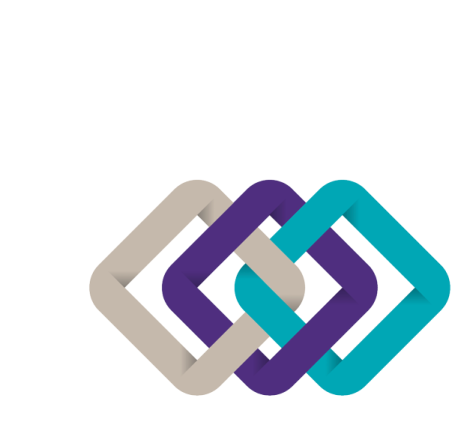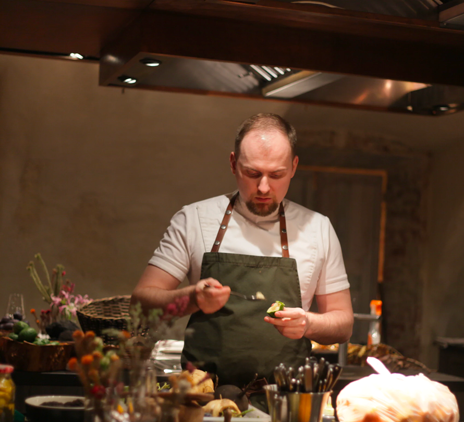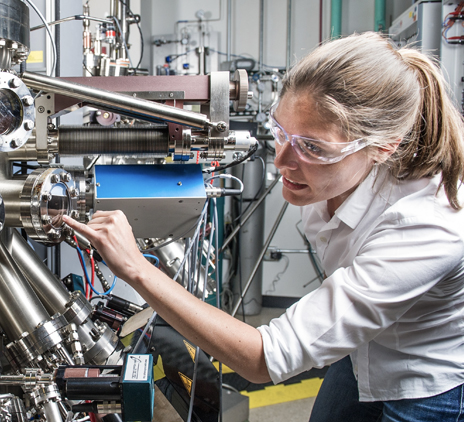Services
- Market services
- Indigenous advisory
Grant Thornton’s expert audit approach will help you comply with regulations, and improve business strategies and internal processes.
-
Compliance audits & reviews
Our audit team undertakes the complete range of audits required of Australian accounting laws to help you to help you meet obligations or fulfil best practice procedures.
-
Audit quality
We are fiercely dedicated to quality, use proven and globally tested audit methodologies, and invest in technology and innovation.
-
Financial reporting advisory
Our financial reporting advisory team helps you understand changes in accounting standards, develop strategies and communicate with your stakeholders.
-
Audit advisory
Grant Thornton’s audit advisory team works alongside our clients, providing a full range of reviews and audits required of your business.
Related insights:


Sustainability Reporting Alert | SRA 2024-3
Looking ahead to the final Australian Sustainability Reporting Standards
Following recent decisions made at the Australian Accounting Standards Board (AASB) meetings, we now have a very clear sense of what the final Australian Sustainability Reporting Standards (ASRS) will look like.
We work with clients at all stages of their business lifecycle – and through all their organisation’s major events – to navigate tax obligations.
-
Corporate tax & advisory
We provide comprehensive corporate tax and advisory service across the full spectrum of the corporate tax process.
-
Private business tax & advisory
We work with private businesses and their leaders on all their business tax and advisory needs.
-
Tax compliance
We work alongside clients to manage all tax compliance needs and identify potential compliance or tax risk issues.
-
Employment tax
We help clients understand and address their employment tax obligations to ensure compliance and optimal tax positioning for their business and employees.
-
International tax
We understand what it means to manage tax issues across multiple jurisdictions, and create effective strategies to address complex challenges.
-
GST, stamp duty & indirect tax
Our deep technical knowledge and practical experience means we can help you manage and minimise the impact of GST and indirect tax, like stamp duty.
-
Tax law
Our team – which includes tax lawyers – helps you understand and implement regulatory requirements for your business.
-
Innovation Incentives
Our national team has extensive experience navigating all aspects of the government grants and research and development tax incentives.
-
Transfer pricing
Transfer pricing is one of the most challenging tax issues. We help clients with all their transfer pricing requirements.
-
Tax digital consulting
We analyse high-volume and unstructured data from multiple sources from our clients to give them actionable insights for complex business problems.
-
Corporate simplification
We provide corporate simplification and managed wind-down advice to help streamline and further improve your business.
-
Superannuation and SMSF
Increasingly, Australians are seeing the benefits, advantages and flexibility of taking control of their own superannuation and retirement planning.
Related insights:


Insight
Australian wine export strategies post-China tariff removal
Following the recent removal of tariffs on Australian wine by China, the industry is keen to rebuild relations and explore the right export markets. This presents Australian wine producers with a chance to reassess their position in the global market.
We work with clients to implement risk management processes and strategies to reduce risk and identify opportunity to extract commercial value.
-
Payroll consulting & Award compliance
Many organisations are grappling with a myriad of employee agreements and obligations, resulting in a wide variety of payments to their people.
-
Cyber resilience
The spectrum of cyber risks and threats is now so significant that simply addressing cybersecurity on its own isn’t enough.
-
Internal audit
We provide independent oversight and review of your organisation's control environments to manage key risks, inform good decision-making and improve performance.
-
Financial crime
Our team helps clients navigate and meet their obligations to mitigate crime as well as develop and implement their risk management strategies.
-
Consumer Data Right
Consumer Data Right (CDR) aims to provide Australians with more control over how their data is used and disclosed.
-
Risk management
We enable our clients to achieve their strategic objectives, fulfil their purpose and live their values supported by effective and appropriate risk management.
-
Controls assurance
In Australia, as with other developed economies, regulatory and market expectations regarding corporate transparency continue to increase.
-
Governance
Through fit for purpose governance we enable our clients to make the appropriate decisions on a timely basis.
-
Regulatory compliance
We enable our clients to navigate and meet their regulatory and compliance obligations.
Related insights:


Client Alert
Significant updates to the Professional Practice Framework
Global Internal Audit Standards (GIAS), it aims to improve and clarify both mandatory requirements and recommended guidance for the Internal Audit function, in turn improving the quality of Internal Audit across the industry.
Our forensics team identifies and obtains relevant information, investigates the financial issue at hand and provides a clear, concise, sustainable opinion as...
-
Forensic accounting and dispute advisory
Our team advises at all stages of a litigation dispute, taking an independent view while gathering and reviewing evidence and contributing to expert reports.
-
Investigations
Our licensed forensic investigators with domestic and international experience deliver high quality results in the jurisdictions in which you operate.
-
Asset tracing investigations
Our team of specialist forensic accountants and investigators have extensive experience in tracing assets and the flow of funds.
Related insights:


Insight
Stages of a payroll remediation project – Stage 5 Dealing with Regulators
This article is the fifth and final instalment in our series where we delve into the stages of a payroll remediation project.
Our team works with clients on all aspects of their deals to get the transaction done and implement the frameworks for long-term success.
-
Mergers and acquisitions
Our mergers and acquisitions specialists guide you through the whole process to get the deal done and lay the groundwork for long-term success.
-
Acquisition search & strategy
We help clients identify, finance, perform due diligence and execute acquisitions to maximise the growth opportunities of your business.
-
Selling a business
Our M&A team works with clients to achieve a full or partial sale of their business, to ensure achievement of strategic ambitions and optimal outcomes for stakeholders.
-
Operational deal services
Our operational deal services team helps to ensure the greatest possible outcome and value is gained through post merger integration or post acquisition integration.
-
Transaction advisory
Our transaction advisory services support our clients to make informed investment decisions through robust financial due diligence.
-
Business valuations
We use our expertise and unique and in-depth methodology to undertake business valuations to help clients meet strategic goals.
-
Tax in mergers & acquisition
We provide expert advice for all M&A taxation aspects to ensure you meet all obligations and are optimally positioned.
Related insights:


Dealtracker
Retail Dealtracker 2024: Harnessing the technological evolution
Despite a decrease in M&A deal volumes and IPO activity in the face of economic uncertainty, Australia’s retail sector remains appealing to investors. Through our analysis of Australian retail M&A and equity markets in the 18 months to 31 December 2023, we saw the retail sector face a mix of challenges and opportunities.
Our finance and funding team works to access sources of finance, present your case to potential funders and negotiate a long-term sustainable relationship.
-
Corporate finance
We provide effective and strategic corporate finance services across all stages of investments and transactions so clients can better manage costs and maximise returns.
-
Debt advisory
We work closely with clients and lenders to provide holistic debt advisory services so you can raise or manage existing debt to meet your strategic goals.
-
Working capital optimisation
Our proven methodology identifies opportunities to improve your processes and optimise working capital, and we work with to implement changes and monitor their effectiveness.
-
Capital markets
Our team has significant experience in capital markets and helps across every phase of the IPO process.
-
Debt and project finance raising
Backed by our experience accessing full range of available funding types, we work with clients to develop and implement capital raising strategies.
-
Private equity
We provide advice in accessing private equity capital.
-
Financial modelling
Our financial modelling advisory team provides strategic, economic, financial and valuation advice for project types and sizes.
-
Payments advisory
We provide merchants-focused payments advice on all aspects of payment processes and technologies.
Related insights:


Insight
Federal Budget health and aged care initiatives announced
The Health and Aged Care industry faces continued uncertainty, but following the Federal Budget announcements on 14 May, improvements are expected.
Our insolvency teams takes a proactive approach so our clients have access to more business turnaround options and retain the most value for all stakeholders.
-
Voluntary administration & DOCA
We help businesses considering or in voluntary administration to achieve best possible outcomes.
-
Corporate insolvency & liquidation
We help clients facing corporate insolvency to undertake the liquidation process to achieve a fair and orderly company wind up.
-
Complex and international insolvency
As corporate finance specialists, Grant Thornton can help you with raising equity, listings, corporate structuring and compliance.
-
Safe Harbour advisory
Our Safe Harbour Advisory helps directors address requirements for Safe Harbour protection and business turnaround.
-
Bankruptcy and personal insolvency
We help clients make informed choices around bankruptcy and personal insolvency to ensure the best personal and stakeholder outcome.
-
Creditor advisory services
Our credit advisory services team works provides clients with credit management assistance and credit advice to recapture otherwise lost value.
-
Small business restructuring process
We provide expert advice and guidance for businesses that may need to enter or are currently in small business restructuring process.
-
Asset tracing investigations
Our team of specialist forensic accountants and investigators have extensive experience in tracing assets and the flow of funds.
Related insights:


Podcast
Small Business Restructures: navigating the current economic climate
In the latest episode of Beyond the Numbers with Grant Thornton, Financial Advisory Partners John McInerney and Cameron Crichton discuss the current economic climate, what SBRs are, eligibility criteria, and how businesses have successfully turned around using this regime.
We help clients identify and undertake restructuring and turnaround initiatives to preserve profitability and protect and recover value.
-
Independent business reviews
Does your company need a health check? Grant Thornton’s expert team can help you get to the heart of your issues to drive sustainable growth.
-
Commercial performance
We help clients improve commercial performance, profitability and address challenges after internal or external triggers require a major business model shift.
-
Safe Harbour advisory
Our Safe Harbour advisory helps directors address requirements for Safe Harbour protection and business turnaround.
-
Corporate simplification
We provide corporate simplification and managed wind-down advice to help streamline and further improve your business.
-
Director advisory services
We provide strategic director advisory services in times of business distress to help directors navigate issues and protect their company and themselves from liability.
-
Debt advisory
We work closely with clients and lenders to provide holistic debt advisory services so you can raise or manage existing debt to meet your strategic goals.
Related insights:


Insight
Australian wine export strategies post-China tariff removal
Following the recent removal of tariffs on Australian wine by China, the industry is keen to rebuild relations and explore the right export markets. This presents Australian wine producers with a chance to reassess their position in the global market.
We work with private businesses across Australia – and internationals looking to Australia for their investments and operations – on all accounting and...
-
Business planning & strategy
Our clients can access business planning and strategy advice through our value add business strategy sessions.
-
Private business company secretarial services
We provide company secretarial services and expert advice for private businesses on all company secretarial matters.
-
Outsourced accounting services
We act as a third-party partner to international businesses looking to invest in Australia on your day-to-day finance and accounting needs.
-
Superannuation and SMSF
We provide SMSF advisory services across all aspects of superannuation and associated tax laws to help you protect and grow your wealth.
-
Management reporting
We help you build comprehensive management reporting so that you have key insights as your business grows and changes.
-
Financial reporting
We help with all financial reporting needs, including set up, scaling up, spotting issues and improving efficiency.
-
Forecasting & budgeting
We help you build and maintain a business forecasting and budgeting model for ongoing insights about your business.
-
ATO audit support
Our team of experts provide ATO audit support across the whole process to ensure ATO requirements are met.
-
Family business consulting
Our family business consulting team works with family businesses on running their businesses for continued future success.
-
Private business taxation and structuring
We help private business leaders efficiently structure their organisation for optimal operation and tax compliance.
-
Outsourced CFO services
Our outsourced CFO services provide a full suite of CFO, tax and finance services and advice to help clients manage risk, optimise operations and grow.
Having a considered and informed ESG response has never been more important for all organisations as we are seeing awareness of the elements of ESG continue to...
-
ESG & sustainability reporting
There is a growing demand for organisations to provide transparency on their commitment to sustainability and disclosure of the nonfinancial impacts of their business activities. Commonly, the responsibility for sustainability and ESG reporting is landing with CFOs and finance teams, requiring a reassessment of a range of reporting processes and controls.
-
ESG & sustainability advisory
With the ESG and sustainability landscape continuing to evolve, we are focussed on helping your business to understand what ESG and sustainability represents and the opportunities and challenges it can provide.
-
ESG, sustainability and climate reporting assurance
As the demand for organisations to prepare information in relation to ESG & sustainability continues to increase, through changes in regulatory requirements or stakeholder expectations, there is a growing need for assurance over the information prepared.
Related insights:


Insight
Navigating sustainability initiatives in an era of greenwashing
Businesses are increasingly recognising the importance of sustainable practices to safeguard our planet for future generations. However, as the demand for sustainable products and services grow, so does the prevalence of greenwashing – a deceptive practice where businesses falsely claim to be environmentally friendly.
Our consulting team supports its clients with hands-on and proactive advice on all aspects of their strategies for sustainable growth.
-
Management consulting
Our management consulting services team helps you to plan and implement the right strategy to deliver sustainable growth.
-
Financial consulting
We provide financial consulting services to keep your business running so you focus on your clients and reaching strategic goals.
Related insights:


Insight
Navigating diverse patient needs in Australian healthcare
Healthcare in Australia grabbles with persistent challenges in balancing patient care with cost efficiency, a struggle expected to endure for the coming decades. Various population segments face significant impacts from these challenges. Tailored interventions and support systems are essential to mitigate disparities and enhance overall well-being.
We take a full view of Indigenous-specific requirements and optimisation opportunities available to businesses.
The growth gateway
-
China practice
The investment opportunities between Australia and China are well established yet, in recent years, have also diversified.
-
Japan practice
The trading partnership between Japan and Australia is long-standing and increasingly important to both countries’ economies.
-
India practice
It’s an exciting time for Indian and Australian businesses looking to each jurisdiction as part of their growth ambitions.
-
Singapore practice
Our Singapore Practice works alongside Singaporean companies to achieve growth through investment and market expansion into Australia.
Related insights:


Client Alert
New privacy laws - tougher penalties and more enforcement
The Australian Federal Government has passed major changes to the Privacy Act 1988 (Cth) in the form of the Privacy Legislation Amendment (Enforcement and Other Measures) Bill 2022. These changes signal a call to action for organisations to review their privacy, security, and information handling practices.
Supporting the growth of ‘Australian Made’ in today’s markets
Related insights:
-
 Insight Australian wine export strategies post-China tariff removalFollowing the recent removal of tariffs on Australian wine by China, the industry is keen to rebuild relations and explore the right export markets. This presents Australian wine producers with a chance to reassess their position in the global market.
Insight Australian wine export strategies post-China tariff removalFollowing the recent removal of tariffs on Australian wine by China, the industry is keen to rebuild relations and explore the right export markets. This presents Australian wine producers with a chance to reassess their position in the global market. -
 Insight Identify your opportunities in the complex landscape of fuel tax creditsThe landscape of fuel tax credits (FTC) is constantly evolving due to ongoing economic and technological developments. This dynamic environment presents both challenges and opportunities for businesses with significant fuel consumption.
Insight Identify your opportunities in the complex landscape of fuel tax creditsThe landscape of fuel tax credits (FTC) is constantly evolving due to ongoing economic and technological developments. This dynamic environment presents both challenges and opportunities for businesses with significant fuel consumption. -
 Client Alert March 2024 Update: NSW Grants for Net Zero Manufacturing and Physical SciencesSome major NSW grant programs have been announced, supporting projects in clean technology innovation, low carbon product manufacturing, renewable manufacturing and physical sciences.
Client Alert March 2024 Update: NSW Grants for Net Zero Manufacturing and Physical SciencesSome major NSW grant programs have been announced, supporting projects in clean technology innovation, low carbon product manufacturing, renewable manufacturing and physical sciences. -
 Insight Navigating a complex Agribusiness, Food and Beverage deals landscape in 2024Despite a 14% global decline in Agribusiness, Food, and Beverage M&A deals, 2024 shows promise with expected global interest rate stabilisation. Given the sector's role in global sustainability, businesses can tap into opportunities in food manufacturing and waste minimisation.
Insight Navigating a complex Agribusiness, Food and Beverage deals landscape in 2024Despite a 14% global decline in Agribusiness, Food, and Beverage M&A deals, 2024 shows promise with expected global interest rate stabilisation. Given the sector's role in global sustainability, businesses can tap into opportunities in food manufacturing and waste minimisation.
From an active natural resources M&A market, a growing energy and renewable energy market, to new technologies and export and trade agreements – we have the...
-
Renewable Energy
Transformation through energy transition
Related insights:


Insight
Navigating the new thin capitalisation rules for renewables
For renewable energy companies, understanding the implications of the new thin capitalisation rules is crucial. These rules will apply for income years starting on or after July 1, 2023.
Working with the sector to understand and manage risk, embrace opportunity and support regulatory compliance
Working alongside health, disability & aged care providers in a challenging environment
On track for innovation and growth
Supporting the growth of the innovators, the IP generators and the job creators
Supporting social impact organisations to deliver for communities
Setting Australia’s knowledge powerhouse up for success
Supporting the sector to respond to economic and social shifts
Our aim is to help you find a better, simpler, more efficient, and more profitable way of doing things to keep your business safe and help you grow.
Exciting, fast paced, innovative and disruptive
-
Business Planning and Strategy
Having an honest, broad-reaching and thought-provoking discussion with a skilled, independent advisor can be the catalyst for clarity – a direction to take your business forward and an understanding of what is key to success.
Related insights:


Insight
The evolving role of finance teams in today’s business landscape
Finance teams are essential to decision-making, planning, and growth in any organisation. And as the business landscape changes, the finance function evolves. That's why it's important to recognise and embrace the growing importance of technology, collaboration, sustainability, and risk management in today's finance functions.
At Grant Thornton we do things differently because we understand that when you strive for better and care about what you do remarkable things are possible.
At Grant Thornton we reach for remarkable and set the bar high to deliver a strikingly different experience for our people.
-
Flexibility & benefits
The compelling client experience we’re passionate about creating at Grant Thornton can only be achieved through our people. We’ll encourage you to influence how, when and where you work, and take control of your time.
-
Your career development
At Grant Thornton, we strive to create a culture of continuous learning and growth. Throughout every stage of your career, you’ll to be encouraged and supported to seize opportunities and reach your full potential.
-
Diversity & inclusion
To be able to reach your remarkable, we understand that you need to feel connected and respected as your authentic self – so we listen and strive for deeper understanding of what belonging means.
-
In the community
We’re passionate about making a difference in our communities. Through our sustainability and community engagement initiatives, we aim to contribute to society by creating lasting benefits that empower others to thrive.
Here, you’ll join a collaborative, agile and dynamic firm that delivers quality services in Assurance, Tax, Financial Advisory, Private Advisory and...
-
Graduate opportunities
As a new graduate, we aim to provide you more than just your ‘traditional’ graduate program; instead we kick start your career as an Associate and support you to turn theory into practice.
-
Vacation program
Our vacation experience program will give you the opportunity to begin your career well before you finish your degree.
-
The application process
Applying is simple! Find out more about each stage of the recruitment process here.
-
FAQs
Got questions about applying? Explore frequently asked questions about our early careers programs.
-
Our services lines
Learn about our services at Grant Thornton
-
Current opportunities
Current opportunities
Ready to take the next step in your career? You’ve worked hard to establish your career, now it’s time to make it remarkable.
-
Remarkable people
Our team members share their remarkable career journeys and experiences of working at Grant Thornton.
-
Working at Grant Thornton
Explore our culture, benefits and ways we support you in your career.
-
Current opportunities
Positions available.
-
Contact us
Get in touch
Be a part of something great – join Grant Thornton’s Alumni program












































